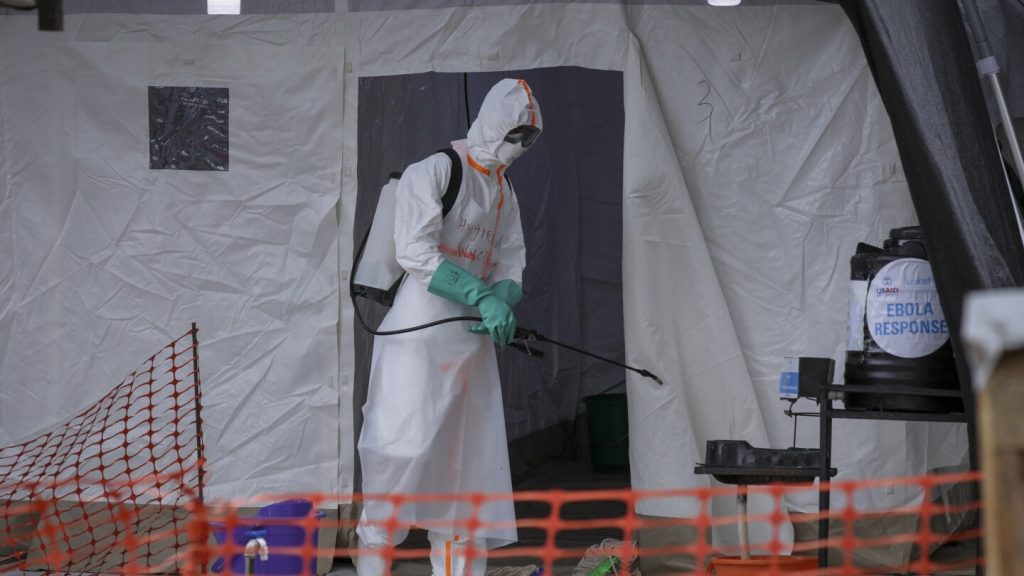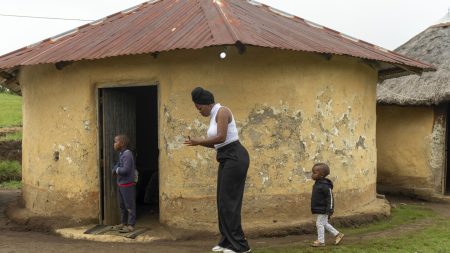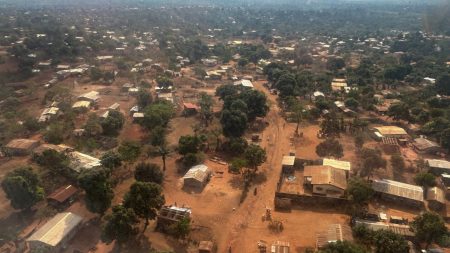Ebola Outbreak in Uganda: Emerging Threat and CDC Response
The global health community is on high alert as Uganda grapples with a fresh Ebola outbreak, prompting U.S. health officials to urge caution for American travelers visiting the country. The Centers for Disease Control and Prevention (CDC) issued a travel alert on Wednesday, advising travelers to Uganda to take enhanced precautions to minimize their risk of exposure. While the alert does not explicitly warn against traveling to Uganda, it emphasizes avoiding contact with individuals showing symptoms of Ebola and steering clear of healthcare facilities unless absolutely necessary. This advisory comes after Ugandan health officials reported the death of a nurse in Kampala, the capital, marking the first recorded Ebola fatality in the country since its last outbreak ended in early 2023.
The situation is particularly concerning due to the extensive travel history of the infected nurse, who visited multiple medical facilities while symptomatic. This behavior has significantly heightened the risk of widespread transmission, according to officials from the World Health Organization (WHO). The nurse’s movements underscore the challenges of containing an outbreak in a densely populated urban setting, where the potential for person-to-person spread is elevated. As a result, health authorities are scrambling to track down individuals who may have come into contact with the nurse and to implement measures to curb further spread of the virus.
The Index Case and Rising Concerns
The recent fatality in Kampala has sent shockwaves through the global health community, as it highlights the persistent threat of Ebola, even in areas with prior experience in managing the disease. The deceased nurse was the first recorded Ebola death in Uganda since the country’s last outbreak was declared over in early 2023. The fact that this case occurred in the capital city raises concerns about the potential for rapid spread, given Kampala’s status as a major urban hub with extensive domestic and international connections.
Health officials are particularly worried about the nurse’s travels while symptomatic, which may have exposed numerous individuals in multiple healthcare facilities. This scenario is reminiscent of past outbreaks where infected individuals unknowingly spread the virus to others, often in healthcare settings. The WHO has flagged this case as a critical moment in determining whether the outbreak can be contained or if it will escalate into a broader public health crisis. The organization is working closely with Ugandan authorities to enhance surveillance, contact tracing, and infection control measures to mitigate the risks.
CDC’s Long-Term Commitment to Global Health in Uganda
The CDC has a long-standing presence in Uganda, dating back decades, and has played a pivotal role in bolstering the country’s capacity to detect and respond to infectious disease threats. The agency established an office in Uganda 25 years ago and currently has 114 personnel on the ground, working tirelessly to support local health authorities. One of the key areas of collaboration has been the development of laboratory testing capabilities, which are essential for identifying pathogens like Ebola and mounting an effective response.
In response to the current outbreak, the CDC has offered additional support to Uganda’s health ministry, including assistance with critical tasks such as contact tracing and improving infection control practices. These efforts are part of a broader commitment to global health security, recognizing that outbreaks in one country can have far-reaching implications for populations worldwide. By strengthening local health systems, the CDC not only helps Uganda respond to the current crisis but also builds resilience against future threats.
Overcoming Collaborative Challenges
The CDC’s efforts to assist Uganda and other countries in containing disease outbreaks have been complicated by a recent order directing the agency to cease collaboration with the WHO. This directive, issued last week, has added a layer of complexity to international response efforts, as the WHO plays a central role in coordinating global health initiatives. However, in recognition of the urgent need for cooperation, CDC personnel have been granted permission to engage in one-on-one communications with their WHO counterparts regarding response activities in Uganda, as well as in Tanzania and the Democratic Republic of Congo, where other disease outbreaks are occurring.
This limited exemption reflects the critical importance of maintaining lines of communication and collaboration in the face of public health emergencies. While the broader implications of the order remain unclear, it is evident that the CDC and WHO must continue to work together to address the pressing challenges posed by infectious diseases. The ability to share data, coordinate strategies, and leverage each other’s expertise is essential for containing outbreaks and safeguarding global health security.
Current Response Efforts: A Focus on Uganda, Tanzania, and Congo
As the situation in Uganda continues to unfold, the CDC is also actively involved in responding to disease outbreaks in neighboring Tanzania and the Democratic Republic of Congo. These efforts highlight the interconnected nature of global health challenges and the need for a coordinated response. In each of these countries, the CDC is working to support local health authorities in enhancing surveillance, improving infection control measures, and ensuring that affected communities receive the assistance they need.
While the focus in Uganda is currently on containing the Ebola outbreak, the CDC’s engagement in the region underscores the importance of addressing multiple public health threats simultaneously. By leveraging its expertise and resources, the agency is helping to build a stronger, more resilient health infrastructure that can withstand future challenges. This comprehensive approach not only benefits the affected countries but also contributes to global health security by reducing the risk of outbreaks spreading beyond their borders.
The Critical Role of International Collaboration in Combating Disease Outbreaks
The ongoing efforts to respond to the Ebola outbreak in Uganda and other disease threats in Africa serve as a stark reminder of the critical importance of international collaboration in combating infectious diseases. In an increasingly interconnected world, no country is immune to the risks posed by outbreaks, and the need for a united response has never been greater. The challenges posed by the recent order curtailing CDC collaboration with the WHO highlight the delicate nature of global health partnerships and the need for consistent, unwavering commitment to these efforts.
Despite the obstacles, the ability of the CDC and WHO to work together, even in limited capacities, demonstrates the enduring importance of these partnerships. By sharing knowledge, resources, and expertise, the global health community can overcome even the most daunting challenges and protect the health and well-being of populations worldwide. As the situation in Uganda and other affected countries continues to evolve, the focus must remain on maintaining and strengthening these collaborative efforts to ensure that the world is better prepared to face future public health crises.












